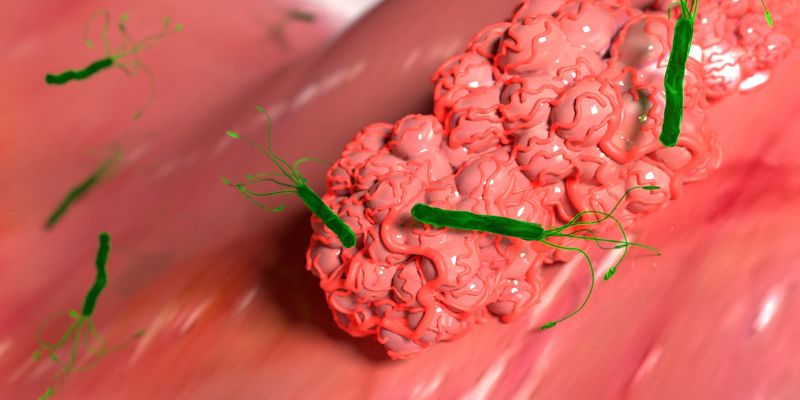Discover The Common Causes And Risk Factors For An Enlarged Spleen
An enlarged spleen, or splenomegaly, is a condition where the spleen becomes more significant than usual. The spleen is an essential organ in the body that plays a vital role in filtering blood, removing waste, and supporting the immune system. While a mildly enlarged spleen may not always cause significant symptoms, a severely enlarged spleen can lead to pain, discomfort, and complications.
In this article, we will explore the causes and risk factors of an enlarged spleen and what you can do to manage the condition.
What Is an Enlarged Spleen?
The spleen is a soft, fist-sized organ located on the left side of the body, under the ribs. It serves several vital functions, such as filtering blood, recycling iron from red blood cells, storing platelets, and fighting infections. In a healthy individual, the spleen is typically not palpable (not felt during a physical examination). However, when the spleen enlarges, it can become noticeable, causing discomfort, abdominal pain, or a feeling of fullness.
Common Causes of an Enlarged Spleen:
Several conditions and diseases can lead to an enlarged spleen. Here are some of the most common causes:
Infections:
Infections, especially those caused by viruses or bacteria, can cause the spleen to enlarge. Some of the most common diseases linked to splenomegaly include:
Mononucleosis (Mono): Caused by the Epstein-Barr virus (EBV), mono is a common viral infection that can lead to swelling of the spleen.
Hepatitis: Both viral and bacterial hepatitis can cause liver damage and an enlarged spleen.
Endocarditis: A bacterial infection that affects the inner lining of the heart can also cause splenomegaly.
Malaria: This parasitic infection, common in tropical areas, can result in the enlargement of the spleen.
Blood Disorders:
Certain blood disorders can cause the spleen to become enlarged due to the increased workload involved in filtering abnormal cells from the bloodstream. These disorders include:
Anemia: A decrease in red blood cells can cause the spleen to enlarge as it works harder to compensate.

Sickle Cell Disease: A genetic disorder affecting red blood cells, it can lead to increased splenic size.
Thalassemia: A group of inherited blood disorders that affect hemoglobin production can cause the spleen to enlarge.
Leukemia: This cancer of the blood and bone marrow can cause the spleen to become enlarged as abnormal cells accumulate.
Cancer:
Some cancers can directly affect the spleen or spread to it from other areas of the body. These cancers include:
Lymphoma: Both Hodgkin and non-Hodgkin lymphoma can cause an enlarged spleen as the cancer cells affect the lymphatic system.
Leukemia: As mentioned earlier, leukemia can result in splenomegaly due to the accumulation of abnormal white blood cells in the spleen.
Metastatic cancer: Cancers from other parts of the body, such as the liver, stomach, or pancreas, can spread to the spleen and cause it to enlarge.
Metabolic Disorders:
Certain metabolic conditions can result in abnormal accumulation of substances in the spleen, leading to its enlargement. For instance:
Gaucher's Disease: A genetic disorder that causes a buildup of fatty substances in the spleen and other organs.
Amyloidosis: A condition where abnormal protein deposits accumulate in organs, including the spleen.
Risk Factors for Developing an Enlarged Spleen:
Several factors can increase your risk of developing splenomegaly. While some conditions are genetic, others may arise from lifestyle or environmental factors. Key risk factors include:
- Age: Certain conditions that lead to splenomegaly, such as infectious mononucleosis, are more common in younger individuals. However, some diseases, like liver cirrhosis and cancer, are more prevalent in older adults.
- Family History: Genetic conditions, such as thalassemia or Gaucher's disease, can increase the likelihood of developing an enlarged spleen. Family members with autoimmune diseases or blood disorders may also be at higher risk.
- Existing Health Conditions: People who have liver diseases, blood disorders, or autoimmune diseases are at greater risk of developing an enlarged spleen. Additionally, those who have weakened immune systems, such as those with HIV/AIDS, may be more susceptible to infections that cause splenomegaly.
- Living in High-Risk Areas: Travelers or residents of areas where diseases like malaria are common are at higher risk for developing an enlarged spleen due to parasitic infections.
Symptoms of an Enlarged Spleen:
In many cases, an enlarged spleen may not cause noticeable symptoms. However, as the spleen becomes larger, individuals may experience the following symptoms:
- Abdominal Pain: Often felt in the upper left side of the abdomen.

- Fullness: A feeling of fullness or pressure, even after eating small amounts of food.
- Fatigue: A general feeling of tiredness or weakness.
- Frequent Infections: Due to a compromised immune system, those with an enlarged spleen may be more susceptible to infections.
- Easy Bleeding or Bruising: An enlarged spleen may affect platelet count, leading to easy bruising or prolonged bleeding.
Diagnosis of an Enlarged Spleen:
If you experience symptoms suggestive of an enlarged spleen, it is essential to seek medical attention. Your doctor may perform a physical examination and may order tests to confirm the diagnosis and identify the underlying cause. Standard diagnostic methods include:
- Physical Examination: The doctor may palpate the abdomen to check for spleen enlargement.
- Ultrasound: A non-invasive imaging test to visualize the spleen.
- CT Scan or MRI: These imaging tests provide more detailed views of the spleen and surrounding organs.
- Blood Tests: To check for infection, blood disorders, or liver function.
Treatment of an Enlarged Spleen:
The treatment for an enlarged spleen depends on the underlying cause. Standard treatment options may include:
- Medications: Antibiotics for infections, antiviral drugs for viral causes, and medications to manage autoimmune conditions.
- Surgery: In some cases, if the spleen is severely enlarged or causing complications, surgical removal of the spleen (splenectomy) may be necessary.
- Blood transfusions: For individuals with blood disorders, transfusions may be needed to support red blood cell and platelet levels.
- Lifestyle changes: A healthy diet, regular exercise, and avoiding drink too much can help manage conditions like liver disease, which may contribute to splenomegaly.
Conclusion
An enlarged spleen can result from a variety of causes, ranging from infections and liver diseases to blood disorders and cancers. Identifying the underlying cause is crucial in determining the appropriate treatment. If you experience symptoms such as abdominal pain, fullness, or fatigue, it is essential to seek medical attention. Early diagnosis and treatment can help prevent complications and manage the condition effectively.












